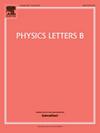Emulators for scarce and noisy data: Application to auxiliary field diffusion Monte Carlo for the deuteron
IF 4.3
2区 物理与天体物理
Q1 ASTRONOMY & ASTROPHYSICS
引用次数: 0
Abstract
The validation, verification, and uncertainty quantification of computationally expensive theoretical models of quantum many-body systems require the construction of fast and accurate emulators. In this work, we develop emulators for auxiliary field diffusion Monte Carlo (AFDMC), a powerful many-body method for nuclear systems. We introduce a reduced-basis method (RBM) emulator for AFDMC and study it in the simple case of the deuteron. Furthermore, we compare our RBM emulator with the recently proposed parametric matrix model (PMM) that combines elements of RBMs with machine learning. We contrast these two approaches with a traditional Gaussian Process emulator. All three emulators constructed here are based on a very limited set of 5 training points, as expected for realistic AFDMC calculations, but validated against exact solutions. We find that the PMM, with emulator errors of only and speed-up factors of , outperforms our implementation of the other two emulators when applied to AFDMC.
稀疏和噪声数据的仿真器:辅助场扩散蒙特卡罗在氘核中的应用
量子多体系统理论模型的验证、验证和不确定性量化需要构建快速、精确的仿真器。在这项工作中,我们开发了辅助场扩散蒙特卡罗(AFDMC)仿真器,这是一种强大的核系统多体方法。介绍了一种AFDMC的RBM仿真器,并以氘核为例对其进行了研究。此外,我们将RBM仿真器与最近提出的参数矩阵模型(PMM)进行了比较,该模型将RBM的元素与机器学习相结合。我们将这两种方法与传统的高斯过程仿真器进行了比较。这里构建的所有三个模拟器都基于非常有限的5个训练点,正如实际AFDMC计算所期望的那样,但针对0(103)个精确解进行了验证。我们发现,当应用于AFDMC时,PMM的仿真器误差仅为≈0.1%,加速因子为≈107,优于我们实现的其他两个仿真器。
本文章由计算机程序翻译,如有差异,请以英文原文为准。
求助全文
约1分钟内获得全文
求助全文
来源期刊

Physics Letters B
物理-物理:综合
CiteScore
9.10
自引率
6.80%
发文量
647
审稿时长
3 months
期刊介绍:
Physics Letters B ensures the rapid publication of important new results in particle physics, nuclear physics and cosmology. Specialized editors are responsible for contributions in experimental nuclear physics, theoretical nuclear physics, experimental high-energy physics, theoretical high-energy physics, and astrophysics.
 求助内容:
求助内容: 应助结果提醒方式:
应助结果提醒方式:


